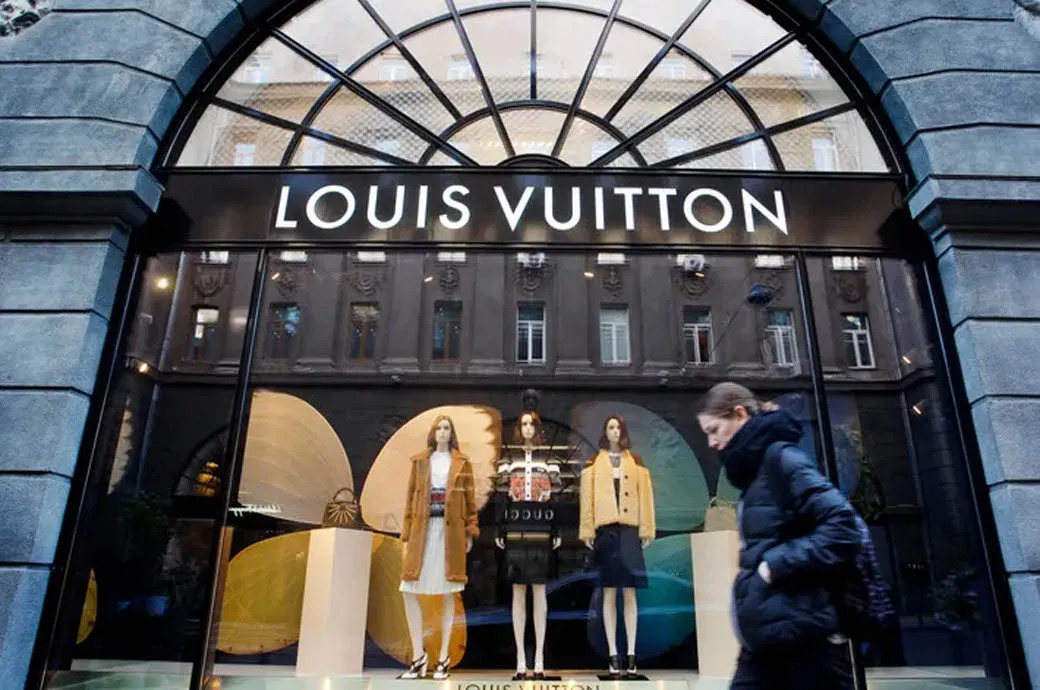LVMH is one of the world’s most iconic luxury brands, renowned for its unparalleled quality and style. Founded in 1987, LVMH stands for Louis Vuitton Moët Hennessy and encompasses over 75 prestigious brands, from fashion and accessories to watches, jewelry and spirits. With a presence in more than 70 countries, LVMH has become a global force for innovation, creativity and craftsmanship.
The history and evolution of LVMH
LVMH is a French multinational luxury conglomerate that owns some of the world’s most prestigious brands. The company was founded in 1987 when Louis Vuitton and Moët Hennessy merged to create one of the largest luxury goods corporations in the world. Today, LVMH owns over sixty prestigious brands including Louis Vuitton, Dior, Fendi, Givenchy, Sephora and Bulgari.
Louis Vuitton, one of the oldest LVMH brands, was established in 1854 by its founder who began his career as a trunk-maker for royalty. Over time it has become known for its high-end leather goods and accessories which are renowned for their quality and craftsmanship. Another well-known LVMH brand is Dior which was founded by Christian Dior in 1946.
Since its founding, LVMH has grown to include over 70 luxury brands, including fashion houses like Dior, Fendi, and Givenchy, as well as champagne and spirits brands like Dom Pérignon and Hennessy. The company has also expanded into other areas, such as cosmetics and jewelry. In recent years, LVMH has focused on sustainability and ethical practices, with initiatives like the LIFE program, which aims to reduce the company’s environmental impact.
Despite challenges like the COVID-19 pandemic, LVMH has remained a dominant force in the luxury goods market, with a strong focus on innovation and growth. Post COVID LVMH has grown into a luxury giant in the world.
The brands under the LVMH umbrella
LVMH owns a vast portfolio of luxury brands, including Louis Vuitton, Dior, Fendi, Givenchy, Celine, Marc Jacobs, Kenzo, Bulgari, Sephora, and many more. Each brand has its own unique identity and target market, but they all share a commitment to quality, craftsmanship, and exclusivity. LVMH’s diverse portfolio allows the company to appeal to a wide range of consumers and maintain its position as a leader in the luxury goods industry.
Louis Vuitton is perhaps the most well-known brand under the LVMH umbrella. Known for its iconic monogrammed bags and luggage. Dior, on the other hand, is known for its haute couture fashion and fragrances. Fendi is a luxury fashion house that specializes in fur and leather goods. Givenchy is known for its elegant and sophisticated clothing and accessories. Celine is a French fashion brand that focuses on minimalism and simplicity.Marc Jacobs offers a more playful and eclectic style.
Bulgari and Sephora brands
Bulgari is a high-end jewelry and watch brand. Sephora is a beauty retailer that offers a wide range of cosmetics and skincare products. With such a diverse range of brands, LVMH is able to cater to a wide range of consumers and maintain its position as a leader in the luxury goods industry. These brands are among the most influential and innovative in their respective markets on a global scale. With the Digital Invasion, LVMH brands has heavily focused on Tech enabled commerce.
In addition to these brands, LVMH also owns other luxury fashion and accessories brands such as Kenzo, Loewe, and Rimowa. The conglomerate also has a strong presence in the wine and spirits industry. They have their brands such as Moët & Chandon, Veuve Clicquot, and Hennessy. LVMH also has a stake in the hospitality industry. They own luxury hotel brands such as Belmond and Cheval Blanc. If you consider any luxury segment, LVMH stands apart among the competitors.
LVMH’s business strategy and success
LVMH, the world’s leading luxury goods conglomerate, has managed to achieve unparalleled success in the industry. The group’s portfolio of brands includes some of the most iconic names in fashion and lifestyle such as Louis Vuitton, Dior, Fendi and Bulgari. One of the key factors that have contributed to LVMH’s success is its ability to balance tradition with innovation.
Another reason for LVMH’s dominance in the luxury goods market is its commitment to quality. Each brand under LVMH’s umbrella adheres to a strict set of standards that ensures their products are crafted with excellence and made from premium materials. Such an unwavering focus on quality has allowed these brands to maintain their reputation for producing high-end products that are worth every penny.
In addition, LVMH understands the importance of exclusivity when it comes to luxury goods.
LVMH’s business strategy is centered around a focus on quality, innovation, and exclusivity. The company’s portfolio of brands includes some of the most iconic names in luxury, such as Louis Vuitton, Dior, and Fendi. LVMH has also expanded into new markets, such as China, where it has seen significant growth in recent years. Additionally, the company has invested in technology and digital initiatives, such as the launch of its own e-commerce platform, to stay ahead of the curve in a rapidly evolving industry.
LVMH’s success can also be attributed to its ability to adapt to changing consumer preferences and trends, while maintaining its commitment to craftsmanship and tradition. Overall, LVMH’s business strategy and success can be attributed to a combination of strong leadership, strategic acquisitions, and a commitment to innovation and sustainability.
The impact of LVMH on the luxury industry
LVMH, also known as Louis Vuitton Moët Hennessy, is a French multinational luxury goods conglomerate. It was formed in 1987 through the merger of fashion house Louis Vuitton and champagne producer Moët & Chandon. Since then, the company has expanded its reach by acquiring numerous luxury brands such as Fendi, Givenchy, and Christian Dior.
Despite facing tough competition in the luxury market, LVMH continues to expand by acquiring new brands and launching new initiatives. In fact, the company has announced several future plans that aim to strengthen its position as a leader in the luxury industry.
The impact of LVMH on the luxury industry cannot be overstated. With its vast portfolio of high-end brands, LVMH has been able to dominate the market and set trends that others follow. Its success has inspired other companies to pursue mergers and acquisitions in order to compete with LVMH’s dominance in the industry.
Investing in Marketing campaigns
In addition to its acquisitions, LVMH has invested heavily in marketing and advertising campaigns that have helped elevate its brand image even further.
LVMH’s impact on the luxury industry can be seen in its ability to maintain the individual identities of its brands while also creating synergies between them. For example, Louis Vuitton’s expertise in leather goods has been leveraged to benefit other brands within the LVMH portfolio, such as Fendi and Celine.
LVMH’s focus on D2C sales has allowed it to better control the customer experience. It has helped them maintain brand integrity. This strategy has been particularly successful in the digital age. Post pandemic, consumers were increasingly looking for personalized and convenient shopping experiences. LVMH’s investment in digital technologies, such as its partnership with Google Cloud Program. This has also helped it to stay ahead of the curve in a rapidly evolving industry. Overall, LVMH’s impact on the luxury industry has been significant. Its continued success is likely to shape the industry for years to come.
LVMH’s future plans and initiatives
LVMH has continued to expand its portfolio of luxury brands, with recent acquisitions including Tiffany & Co. and Belmond. The company has also made a commitment to sustainability, with initiatives such as the LIFE 360 program.
The LIFE (LVMH Initiatives For the Environment) program was created in 2012. This was initiated to elevate the environmental performance of LVMH and its Maisons.
The program aims to reduce the environmental impact of its products and operations. LVMH has also launched a startup accelerator program, La Maison des Startups, to support innovative startups in the luxury industry. With its focus on innovation and sustainability, LVMH is poised to continue shaping the luxury goods industry for years to come.
LVMH has also announced plans to launch a new e-commerce platform, 24S. This will offer a curated selection of luxury fashion and accessories from LVMH-owned brands and other luxury labels. The company has also invested in digital technology, with the launch of its own blockchain platform, Aura. Aura will allow customers to track the authenticity and history of their luxury goods.
LVMH’s commitment to innovation and sustainability is good for the environment. Also consumers are increasingly demanding ethical and eco-friendly products. The goal is to have every product sustainably designed by 2030.
Impact of Digitalization
In recent years, digitalization has revolutionized the way businesses operate. LVMH, a luxury goods brand, is no exception to this trend. The impact of digitalization on LVMH has been profound and far-reaching.
In 2015, in what must have been a surprise to the tech company notorious for taking executives from other brands, LVMH hired Apple’s former senior director of iTunes for its newly created position of chief digital officer (CDO). The appointment marked digital as a new focus for the world’s largest luxury conglomerate.
The internet has changed the definition of the word “local”. Local used to mean near Paris, near Tokyo, near Mumbai, near Shanghai. Today, local means shared interests, regardless of geography. We’re also moving from a world where marketing was hyper efficient, to a world where quality is hyper efficient.
One of the key ways in which digitalization has impacted LVMH is through e-commerce. The brand now sells its products online, allowing customers to browse and purchase items. This has not only increased convenience for customers but also expanded LVMH’s reach beyond physical stores.
Another significant impact of digitalization on LVMH is through data collection and analysis. By gathering data on customer preferences and behavior, the brand can tailor its marketing strategies accordingly. This allows for more personalized communication with consumers and ultimately drives sales growth for the company.
Final Thoughts
In conclusion,it is clear that LVMH has become one of the most iconic luxury brands in the world. With its vast portfolio of high-end products, it has been able to continuously grow and develop over the years. It has also managed to remain at the forefront of innovation and trends. Focusing on core values and sticking to fundamentals while growing 10X. Moreover, it has created a strong presence across multiple markets around the world, making it a leader in luxury retailing. No doubt it has reached the $500B market cap. The feat never been achieved for any Luxury brand.





